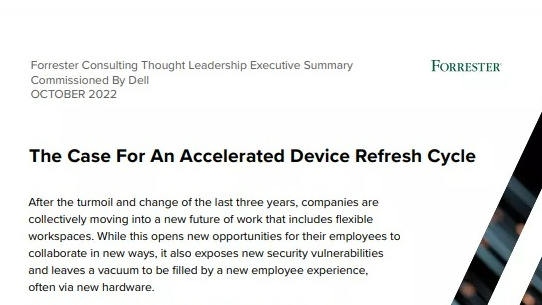Collaboration is about people, not just technology
Companies must truly know themselves to successfully become more collaborative


Successful collaboration within a business is as much a matter of culture as it is of implementing technology.
So claim speakers at Dennis Business Media's inaugral Collaboration and Communication conference held in London yesterday.
When companies decide they want to be more collaborative, they have to realise that the change that entails is "a cultural journey, not a software installation," according to speaker, Kat Mandelstein, a consultant with PwC.
"It is [about] much more than the technologies when it comes to collaboration," said Mandelstein. "It's really focused in on how you solve your business problems and your business processes, creating experiences for your employees ... and then really at the hub of it is accelerating business growth, because none of us will have the jobs to be collaborative if we don't grow our businesses!"
When it comes to creating employee experiences, Mandelstein said it was particularly important to understand what kind of people a company employees and their expectations, which are often influenced by age.
This topic was also touched on by another speaker, Hannah Nardini, a design director and workplace consultant at Twenty 20 Design. She explained that the different generations currently in the workplace, from the Baby Boomers down to Generation Z, all have different expectations and experiences when it comes to working life. This, she added, influences how comfortable they will be with any shift towards creating a more collaborative workplace.
However, she warned the audience not to follow lazy assumptions about these groups either, adding that Boomers in particular are the opposite of the inflexible, "stick-in-the-mud" stereotype often thrown at them.
Sign up today and you will receive a free copy of our Future Focus 2025 report - the leading guidance on AI, cybersecurity and other IT challenges as per 700+ senior executives
"[Boomers] are very, very adaptable," said Nardini. "If you think about the career path of a Baby Boomer, they have gone through the most transitions, if you think about it. They have gone from the typing pool to open plan to office, back to open plan, back to the office and back again to open plan."
"[They] are natural collaborators. They are more likely to get up and physically go and see somebody and have a conversation with them than rely on email or picking the phone up," she added.
Younger generations, on the other hand, can be overly reliant on communications technologies such as email because it has existed for their entire adult lives. As a result, it can be harder to get them to collaborate outside of their inbox. However, by mixing the older workers with the young, companies can create a more collaborative workspace as the newer hires are brought out of their shells and knowledge transfer both ways ensues.
In addition working out the generational profile of the business, organisations also need to work out if they are made up mainly of extroverts, introverts, or ambiverts, according to Nardini. People with these different personality traits also require different levels of support and opportunities in order to collaborate, Nardini added.
While building a collaborative culture may prove difficult, once it is in place other key aspects like rolling out collaboration technology will be easier and more likely to be accepted, delegates and speakers alike agreed. Furthermore, they also stressed the importance of sustaining these cultural and strategic elements once implemented so that collaboration changes and evolves with the needs of the business and those inside and outside of the organisation.

Jane McCallion is Managing Editor of ITPro and ChannelPro, specializing in data centers, enterprise IT infrastructure, and cybersecurity. Before becoming Managing Editor, she held the role of Deputy Editor and, prior to that, Features Editor, managing a pool of freelance and internal writers, while continuing to specialize in enterprise IT infrastructure, and business strategy.
Prior to joining ITPro, Jane was a freelance business journalist writing as both Jane McCallion and Jane Bordenave for titles such as European CEO, World Finance, and Business Excellence Magazine.
-
 The NCSC touts honeypots and ‘cyber deception’ tactics as the key to combating hackers
The NCSC touts honeypots and ‘cyber deception’ tactics as the key to combating hackersNews Trials to test the real-world effectiveness of cyber deception solutions have produced positive results so far
-
 Can data center supply keep up with AI demand?
Can data center supply keep up with AI demand?News New research from Goldman Sachs points to a precarious balancing act for data center operators
-
 'Digital hide-and-seek': Workers are wasting hundreds of hours a year sourcing the information they need to carry out their role
'Digital hide-and-seek': Workers are wasting hundreds of hours a year sourcing the information they need to carry out their roleNews Knowledge workers globally are wasting a quarter of their working week tracking down information, new research from Atlassian has revealed.
-
 Untethered: How CIOs and CISOs are paving the way for the new hybrid workforce
Untethered: How CIOs and CISOs are paving the way for the new hybrid workforceWhitepaper Effective techniques to transition from exposed legacy infrastructure to an effective zero trust strategy
-
 Unlocking the power of your digital services
Unlocking the power of your digital servicesSponsored Businesses have invested significant cash into technology since COVID-19, but are they really getting their money's worth?
-
 Delivering fast and secure digital experiences for the modern hybrid workforce
Delivering fast and secure digital experiences for the modern hybrid workforceWhitepaper A new approach to digital experience monitoring that can monitor the health of all systems
-
 Collaboration is the glue that holds your business together
Collaboration is the glue that holds your business togetherSPONSORED A combination of productivity tools and cloud telephony can enable the best from your workforce
-
 The future of work and the forgotten workforce
The future of work and the forgotten workforcewhitepaper How to deploy a mobile-first strategy so no one gets left behind
-
 The case for an accelerated device refresh cycle
The case for an accelerated device refresh cycleWhitepaper Achieving a more cost-effective device lifecycle overall
-
 Employees are choosing how they work
Employees are choosing how they workWhitepaper And with the right secure digital strategy, this could be a great thing for your business: today and far into the future